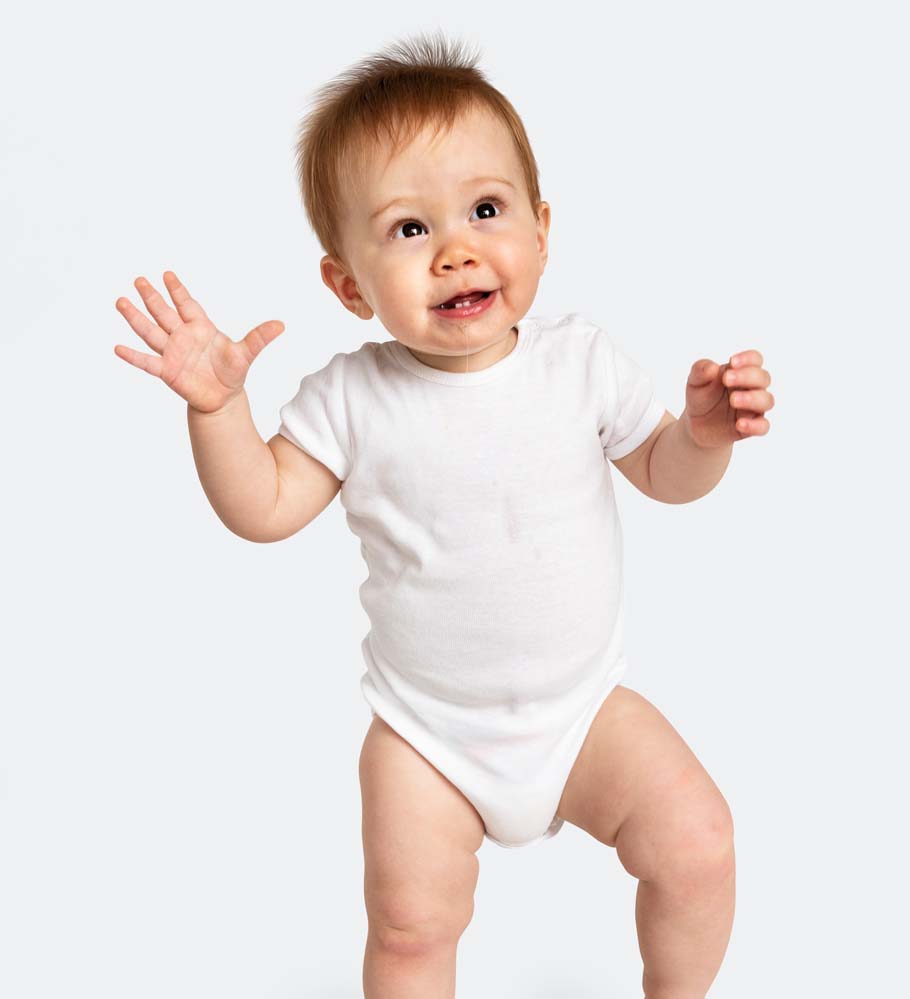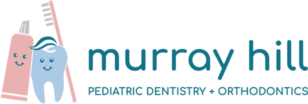
When should my child first visit the dentist?
The American Academy of Pediatric Dentistry, the American Academy of Pediatrics, and the American Dental Association recommend that your child’s first pediatric dental visit should be scheduled once the first tooth erupts or by age one. At your child’s first dental visit, your pediatric dentist will perform a comprehensive exam to ensure your little one’s teeth are erupting properly. Your dentist will also review important oral health and diet practices that will minimize decay. After your initial visit, your little one should continue to see the dentist every six months.
Why are baby teeth so important?
One of the most common questions we get is, “Why are baby teeth important? They are going to fall out anyway.” Primary teeth are vital for your child’s overall health and play an important role in facial growth and development. They also act as natural space maintainers and guide the eruption of the adult teeth. Decay in primary teeth can cause pain, swelling, infection and early loss of primary teeth.
When will my child’s teeth begin to grow in?
Teeth development in general begins before birth for baby teeth and around birth for permanent teeth. Typically, the lower front teeth will begin to erupt at approximately 6 months on average.
The permanent teeth typically begin to erupt at age 6 with the lower front teeth and the adult molars and will end around age 12.
What is teething?
Teething occurs when baby teeth begin to grow in. While this is relatively problem-free for most children, others may experience some discomfort. We recommend frozen washcloths, frozen teething rings and if needed, some Motrin or Advil to provide comfort through this process. You may notice a drop in appetite, but it’s important to ensure that your little one is well hydrated.
It is always wise to contact your dentist or health professional if you have additional questions or concerns about teething.
How can I clean my little one’s teeth?
For infants, you can use a washcloth and water to clean the gums, but once the teeth begin to erupt, a soft bristled toothbrush can be introduced. The current ADA and AAPD guidelines recommend that a rice size amount of fluoridated toothpaste can be used for this age group.
Bottle use or nursing at bedtime
Putting a baby to sleep with a bottle of milk or juice, or nursing a baby to sleep can be harmful to the teeth. The normal mechanisms that help keep teeth clean during the day, like salivary flow, are much lower at night. Meanwhile the teeth are bathed in sugar from the drinking or nursing, which provides a perfect environment for decay.
Children who frequently bottle- or breastfeed while napping, sleeping, or between meals, run the risk of developing extensive tooth decay. Fruit / citrus juices, and sweetened beverages cause the most damage. You can brush your baby’s teeth after the last feed at night with a soft-bristled toothbrush and use a washcloth to wipe the teeth if your infant has multiple feeds throughout the night.
Preventing early–childhood caries
Early-childhood caries is formerly known as baby-bottle tooth decay or nursing caries. The condition occurs when a child is overexposed to sugary liquids. Severe early childhood caries usually occurs when the child is routinely put to bed with a bottle containing juice, soda, or milk. It can also occur as a result of “grazing” with a sippy cup.
Early-childhood caries can destroy teeth, require major dental treatment, and even potentially damage your child’s adult teeth if left untreated. To prevent this condition:
- Help your child start learning to drink from a regular cup by their first birthday.
- If your child “grazes,” only allow water in any bottles or sippy cups used.
- Clean your baby’s gums with a fresh gauze pad after each feeding.
- Begin brushing as soon as you see the first tooth.
- Never give your child a pacifier coated in sugar or dipped in honey.
- The bacteria that causes caries is transmissible, avoid sharing drinks or kissing your baby close to the mouth, especially if you have not seen your dentist for regular appointments.
Thumb sucking or pacifier use
Sucking is a normal reflex for infants and is present even before birth. It helps infants to self soothe. Most children stop sucking fingers, thumbs, or pacifiers on their own; but some children may continue beyond toddlerhood. Every effort should be made to help your child move on from thumbs or paci’s by age 4 or 5. Prolonged thumb sucking or pacifier use can result in orthodontic changes such as a narrowed arch. As the adult front teeth begin to come in, if the habit persists, the teeth can be flared.
Dental emergencies
Dental emergencies are common as toddlers become more mobile and active. Precautionary measures such as childproofing your home are a great first step. It is, however, impossible to watch your toddler every moment of the day, and emergencies can happen even under the most watchful eyes!
Establishing a good dental home for your little one where they can be evaluated as quickly as possible is important. And of course if a fall or trauma goes beyond dental, call 911 or take your toddler to the ER to be evaluated for more serious head or neck injuries.
To learn more about our practice, give us a call today.
We provide the finest available dental care to children and adolescents.
Let’s Connect.
New York, NY 10016
- Mon: 8:30 am - 6:30 pm
- Tues: 8:30 am - 6:30 pm
- Wed: 8:30 am - 6:30 pm
- Thurs: 8.30 am - 6.30 pm
- Fri: 8:30 am - 6:30 pm
- Sat: 9:00 am - 4:30 pm
